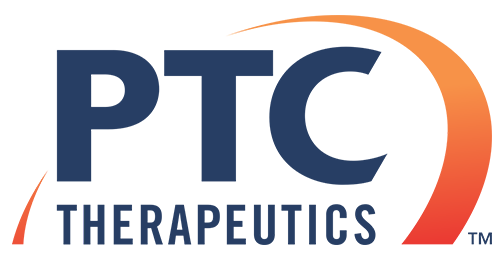
Twenty years ago, we were first introduced to PTC Therapeutics. We watched as PTC-124 was in early studies of safety and dose finding. Over the years, as studies continued, PTC-124 was referred to as ataluren and in 2014, the European Medicines Agency (EMA), the European Union’s equivalent to the U.S. Food and Drug Administration (FDA), granted conditional market authorization for Translarna. Translarna allows for stop-codon read through to produce dystrophin in patients with nonsense mutations or ‘periods in the middle of their genetic sentence.’
Studies continued to evaluate the impact of Translarna as people with Duchenne began to access Translarna across Europe. PTC developed the STRIDE registry, a patient data repository, to capture real world evidence on the long term use of Translarna. STRIDE refers to Strategic Targeting of Registries and International Database of Excellence. Since the EMA approval, the STRIDE patient registry enabled a broader understanding of the usage and evidence of effectiveness of Translarna.
The US FDA has not approved Translarna, requesting PTC provide evidence of the biological activity, the expression of dystrophin. To collect data on expression of dystrophin, PTC launched Study 045, a 20 patient study to evaluate expression of dystrophin after 40 weeks of Translarna therapy.
Last night, PTC reported that dystrophin was expressed in 80% of the patients in Study 045. They utilized an assay suggested to be more sensitive than the familiar Western Blot. While they did not meet statistical significance, the P-value required by FDA, it is believed that evidence of dystrophin combined with the change in physical assessments demonstrates that Translarna is effective for individuals with nonsense mutations, resulting in the expression of dystrophin and slowing progression.
Next steps will include submitting the New Drug Application (NDA) to the US FDA for consideration of the totality of evidence. PTC continues with Study 041 which will continue to expand data about the long-term impact of Translarna.
Upcoming PTC Conference Call
PTC is holding a conference call with the Duchenne community on February 11 at 12:30 PM ET to walk through the data and to answer questions. Questions can be submitted to info@parentprojectmd.org and we will share them with PTC.
You can access the call by dialing (877) 303-9216 (domestic) or (973) 935-8152 (international) five minutes prior to the start of the call and providing the passcode 7714859.
Read PTC’s Letter to the Duchenne Community
Dear Duchenne Community,
Your support and participation in the Translarna™ (ataluren) clinical development program has been incredibly important. We have been partners for over 20 years on this journey. Today, we are pleased to share the results on the dystrophin study (Study 045), which assessed dystrophin levels in patients with nonsense mutation Duchenne muscular dystrophy (nmDMD) treated with Translarna™ (ataluren) as recommended by the US FDA.
In this study, the effect of treatment with Translarna on full-length dystrophin expression was measured by two validated and sensitive assays: electrochemiluminescence (ECL), which was the primary endpoint, and immunohistochemistry (IHC), which was the secondary endpoint. Overall, there was an increase in dystrophin expression from baseline in both the primary and secondary endpoints, although it did not meet the p value of <0.05. However, when looking at the evaluable* population, there was a greater increase in dystrophin expression. We are pleased that over 80 percent of evaluable patients demonstrated an increase in dystrophin expression following Translarna treatment. Patients who received a longer duration of treatment due to COVID-19- related delays experienced a markedly greater increase in dystrophin expression, potentially suggesting that an extended duration of treatment may result in a greater biological effect, which is consistent with the long-term Translarna treatment benefit we have previously reported from our other clinical studies and our real-world STRIDE registry.
The data from the 045 study adds to the totality of Translarna data which includes demonstration of increased full-length dystrophin production, clinical benefit across multiple endpoints in several placebo-controlled trials, and real-world evidence of long-term clinical benefit on key aspects of disease progression.
We remain driven to deliver on our mission to provide access to this transformative therapy to the patients living with nonsense mutation Duchenne muscular dystrophy in the U.S. As a next step, we will be discussing these results and the collective clinical and real-world data with the U.S. Food and Drug Administration to determine if there is a potential accelerated path for approval in the U.S.
We will be hosting a conference call for the Duchenne community to discuss the Study 045 results and to answer questions. The call will take place on Thursday, February 11th at 12:30 pm ET. You can access the call by dialing (877) 303-9216 (domestic) or (973) 935-8152 (international) five minutes prior to the start of the webinar and providing the passcode 7714859. Please work with your patient advocacy group to submit questions.
We are grateful for your ongoing support and look forward to continuing our collaboration in the future.
Sincerely,
Stuart Peltz, Ph.D.
Chief Executive Officer
PTC Therapeutics*20 patients were enrolled in the study, however data from two patients were not able to be analyzed due to noncompliance and sample quality.



 by: Parent Project Muscular Dystrophy
by: Parent Project Muscular Dystrophy


